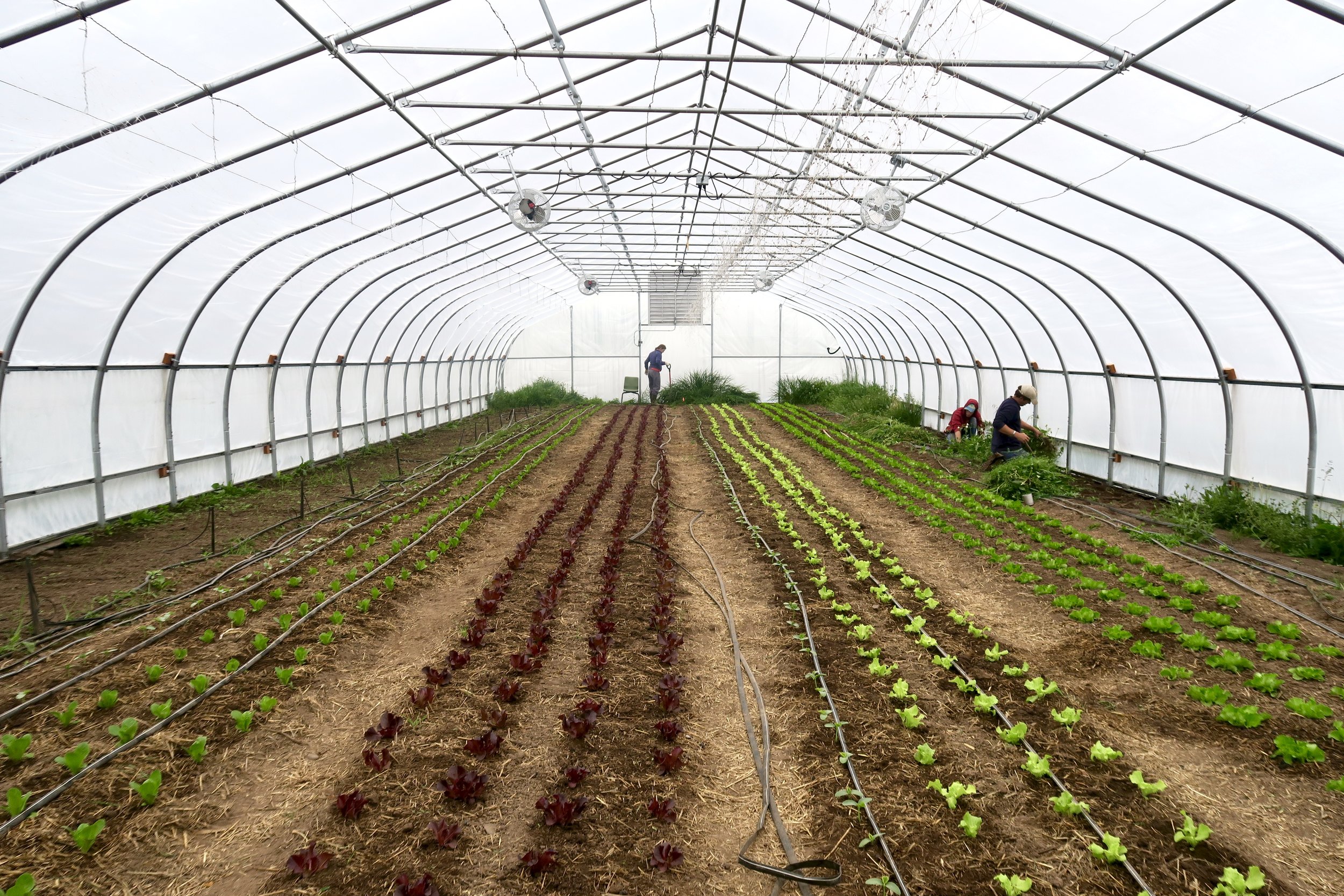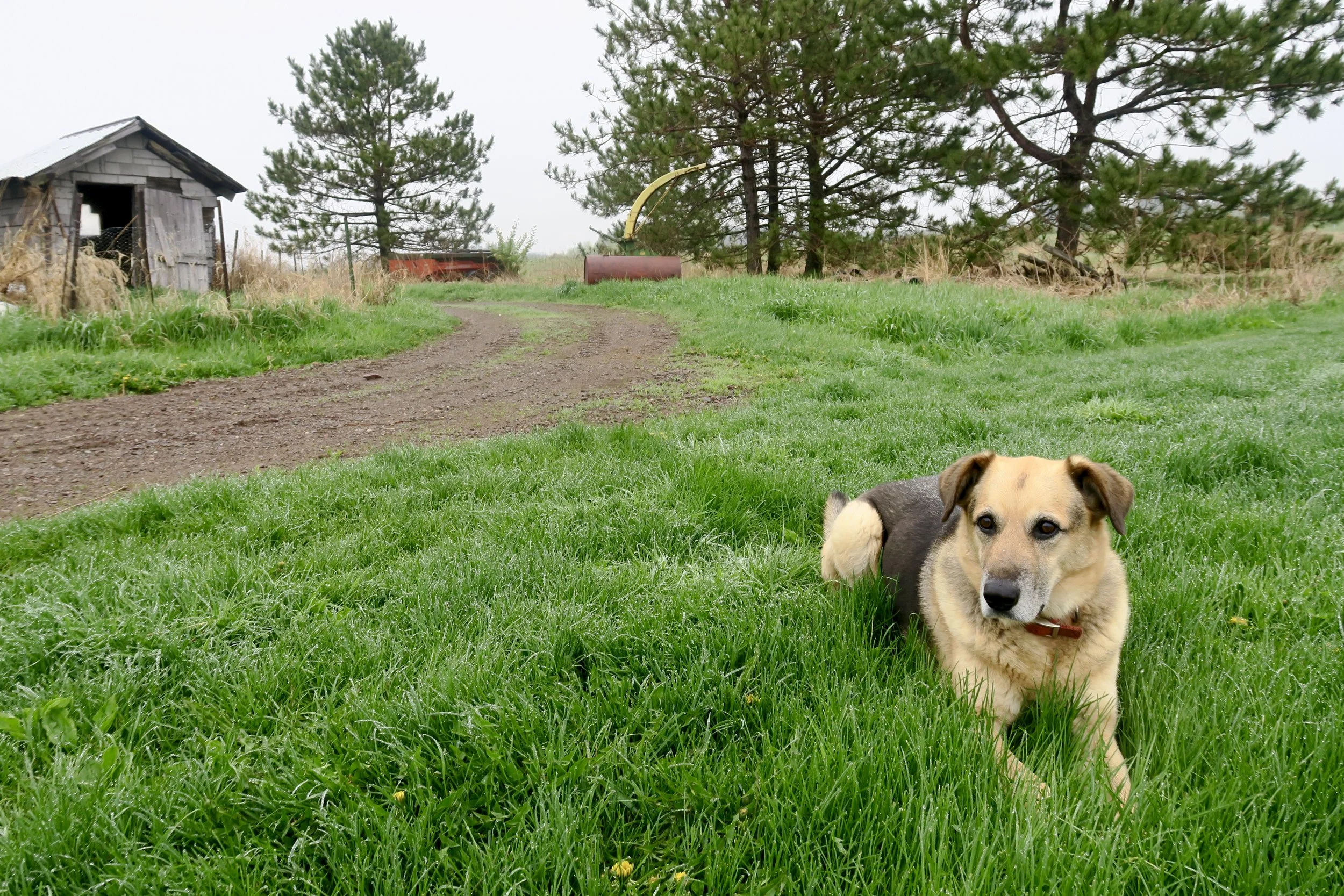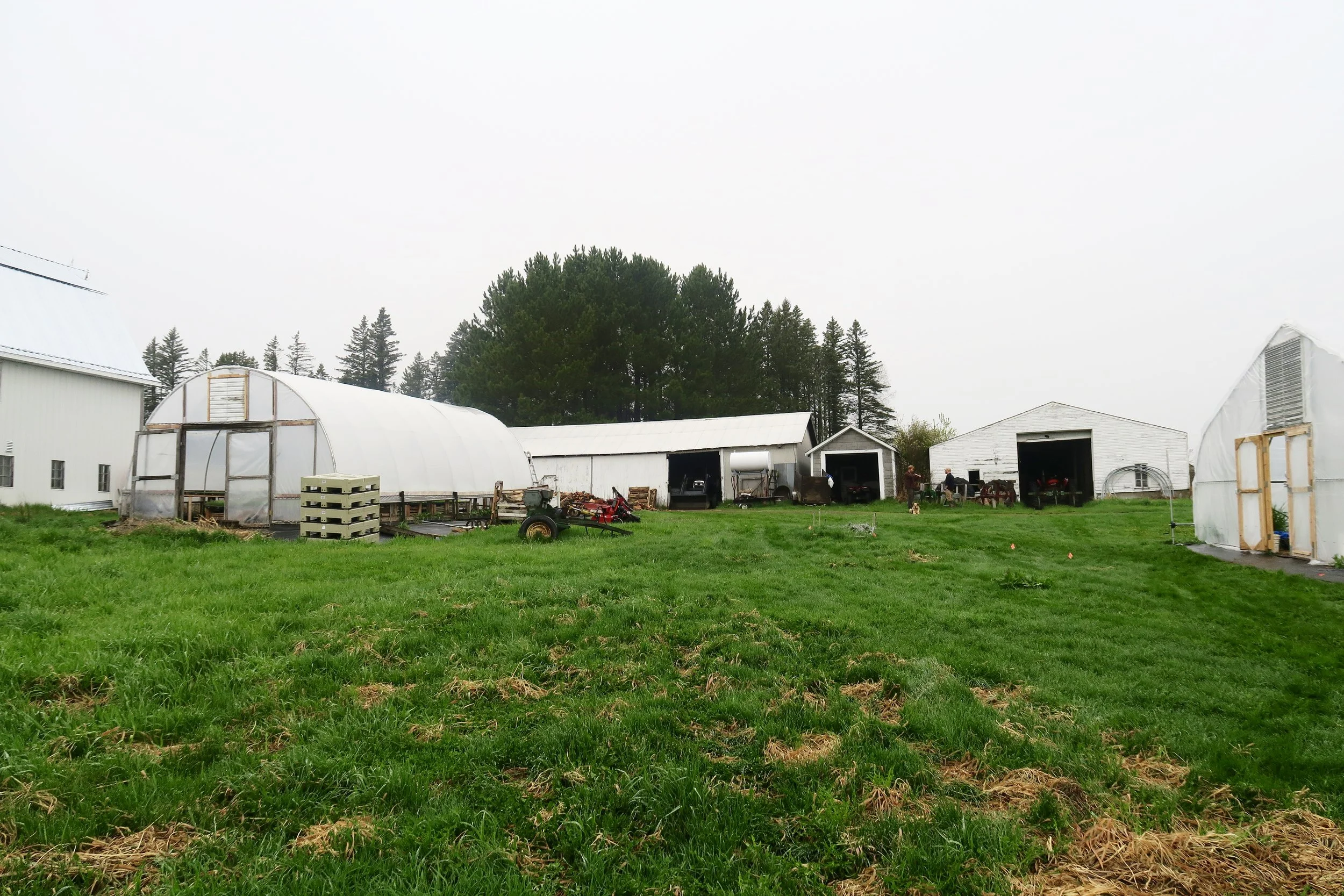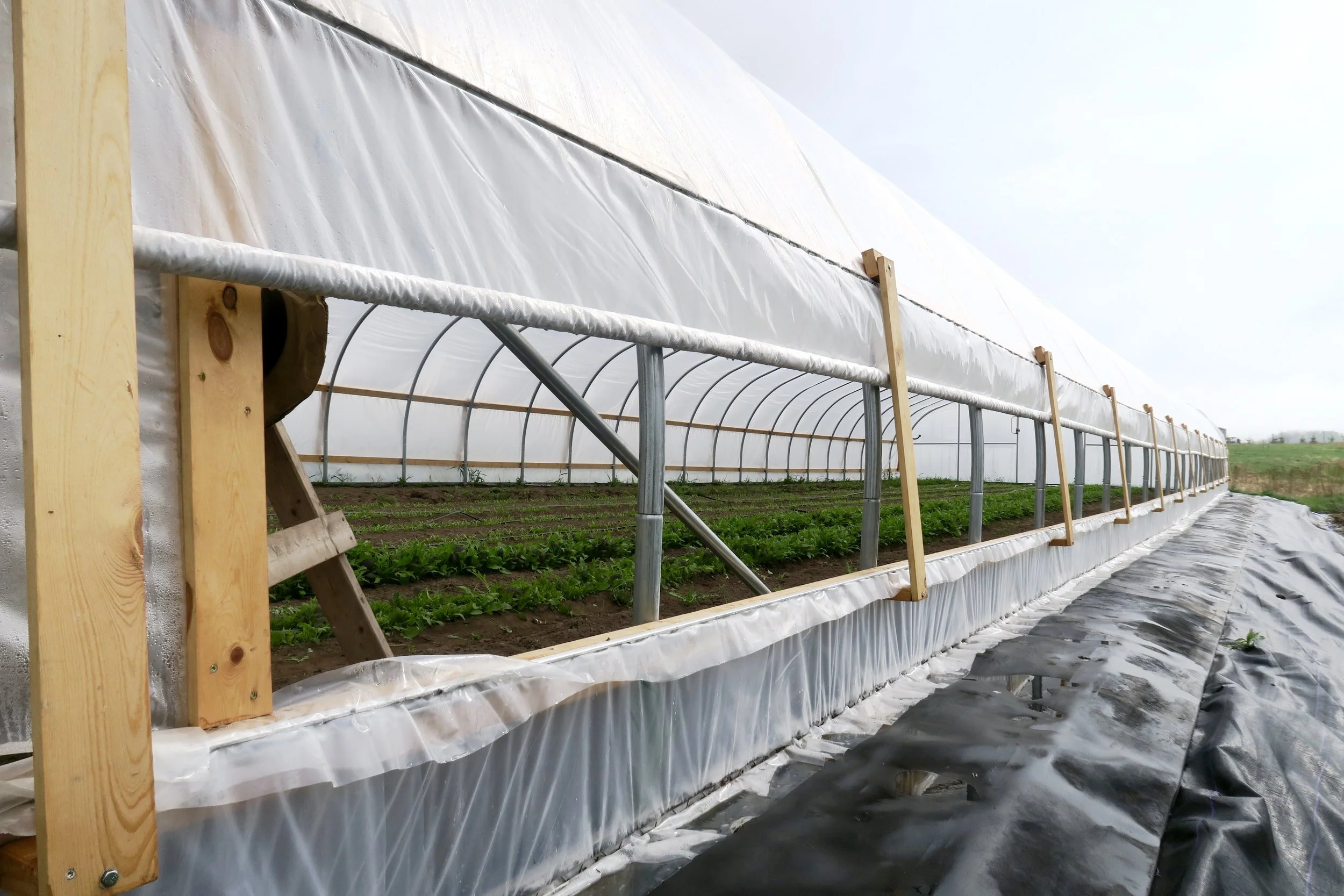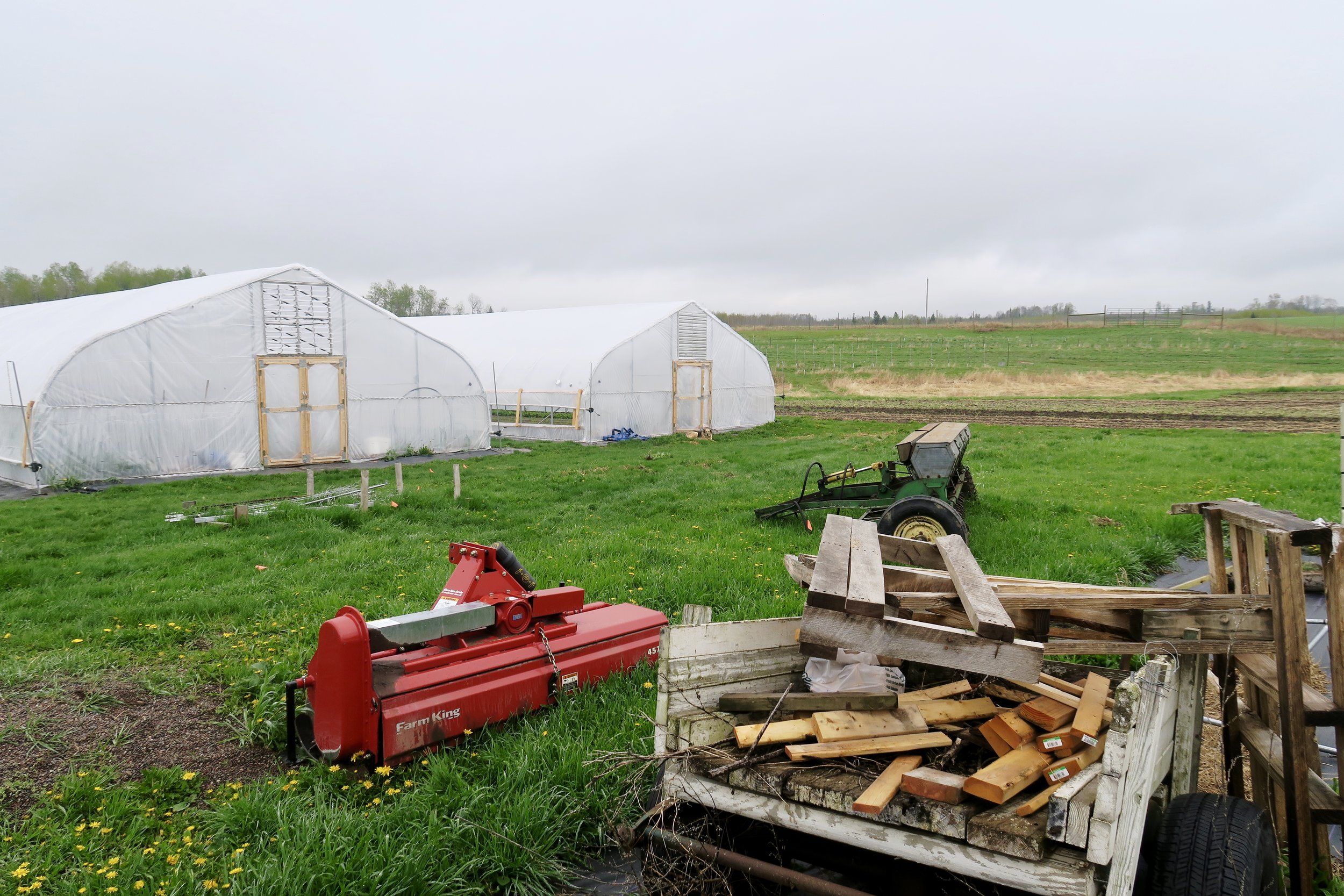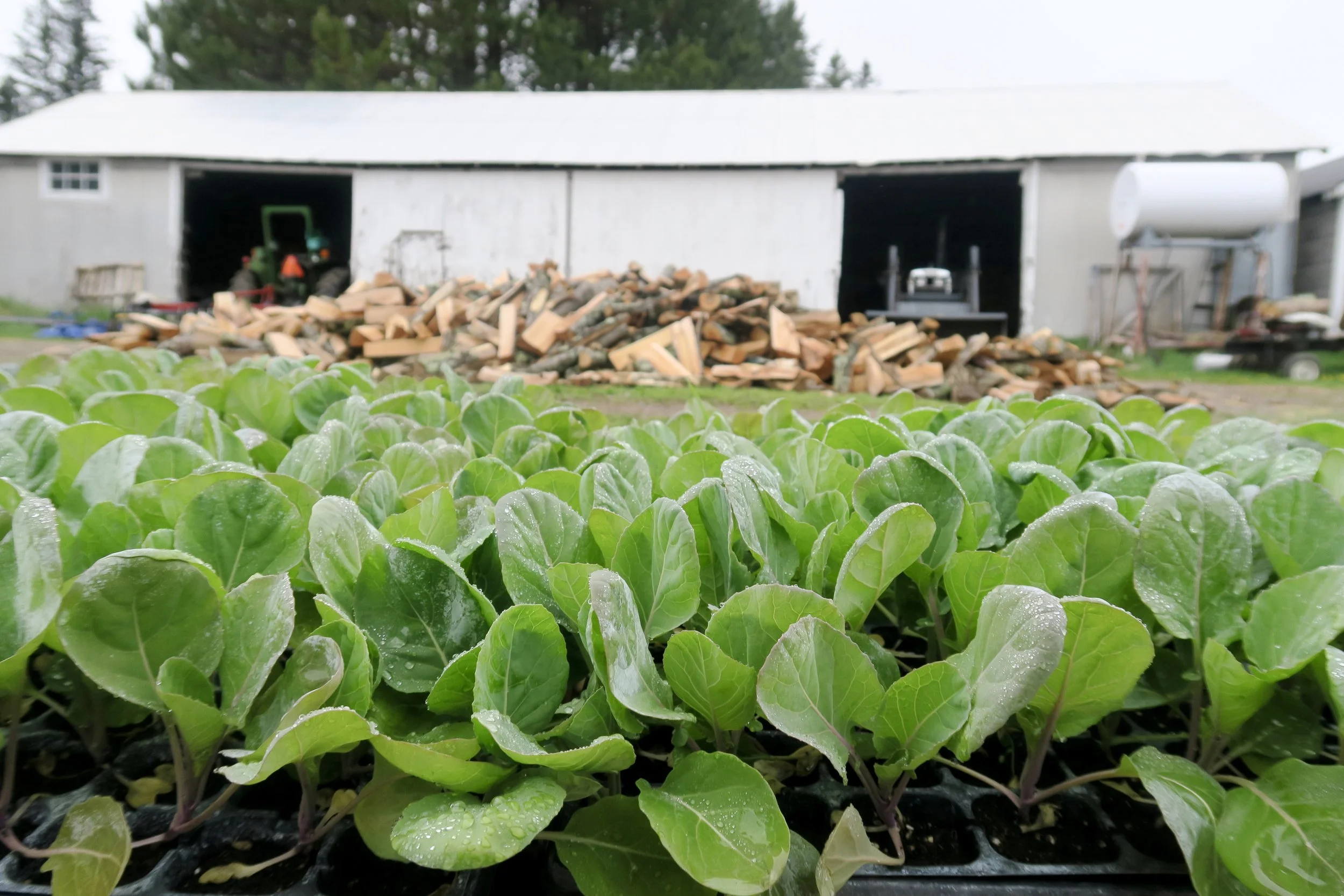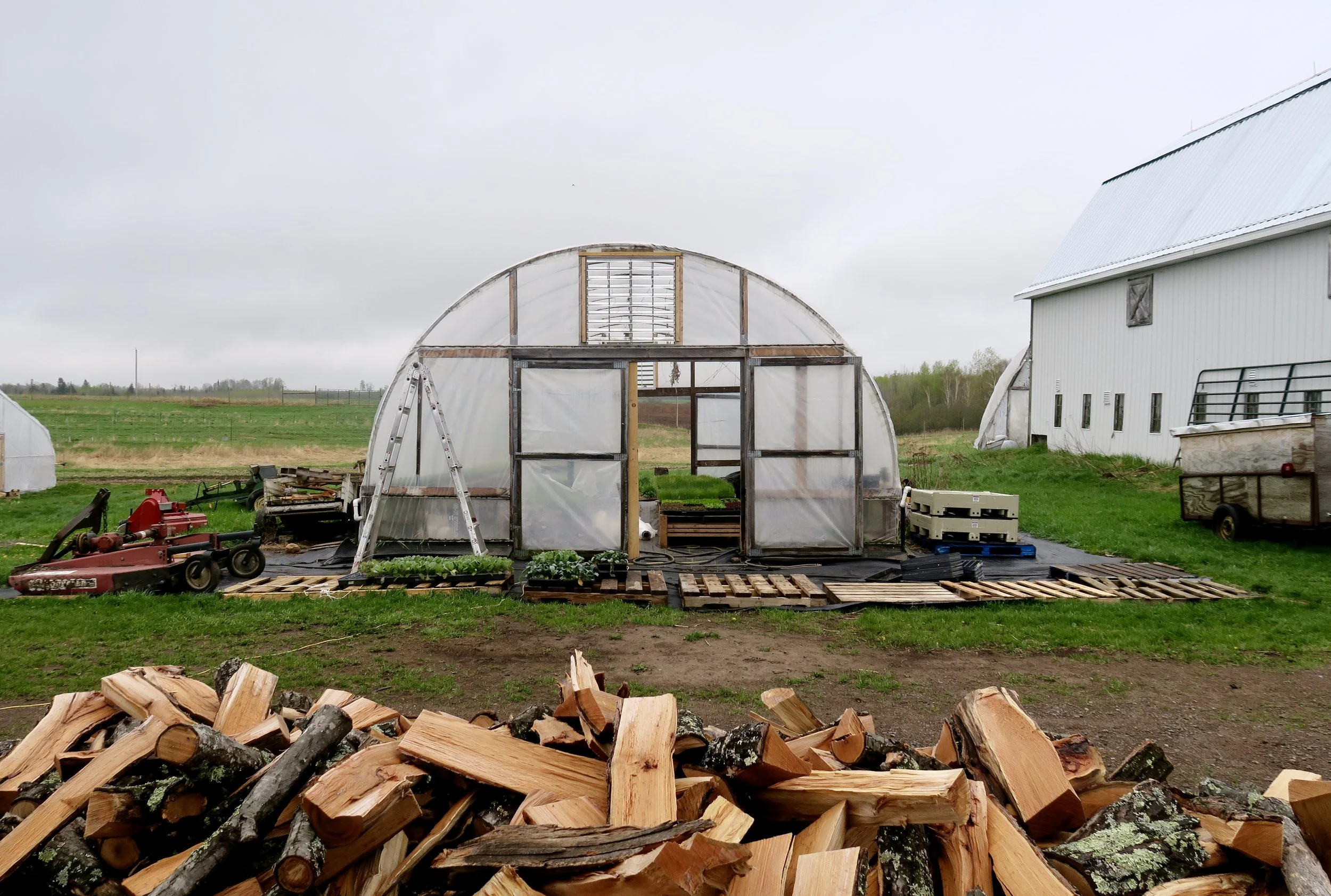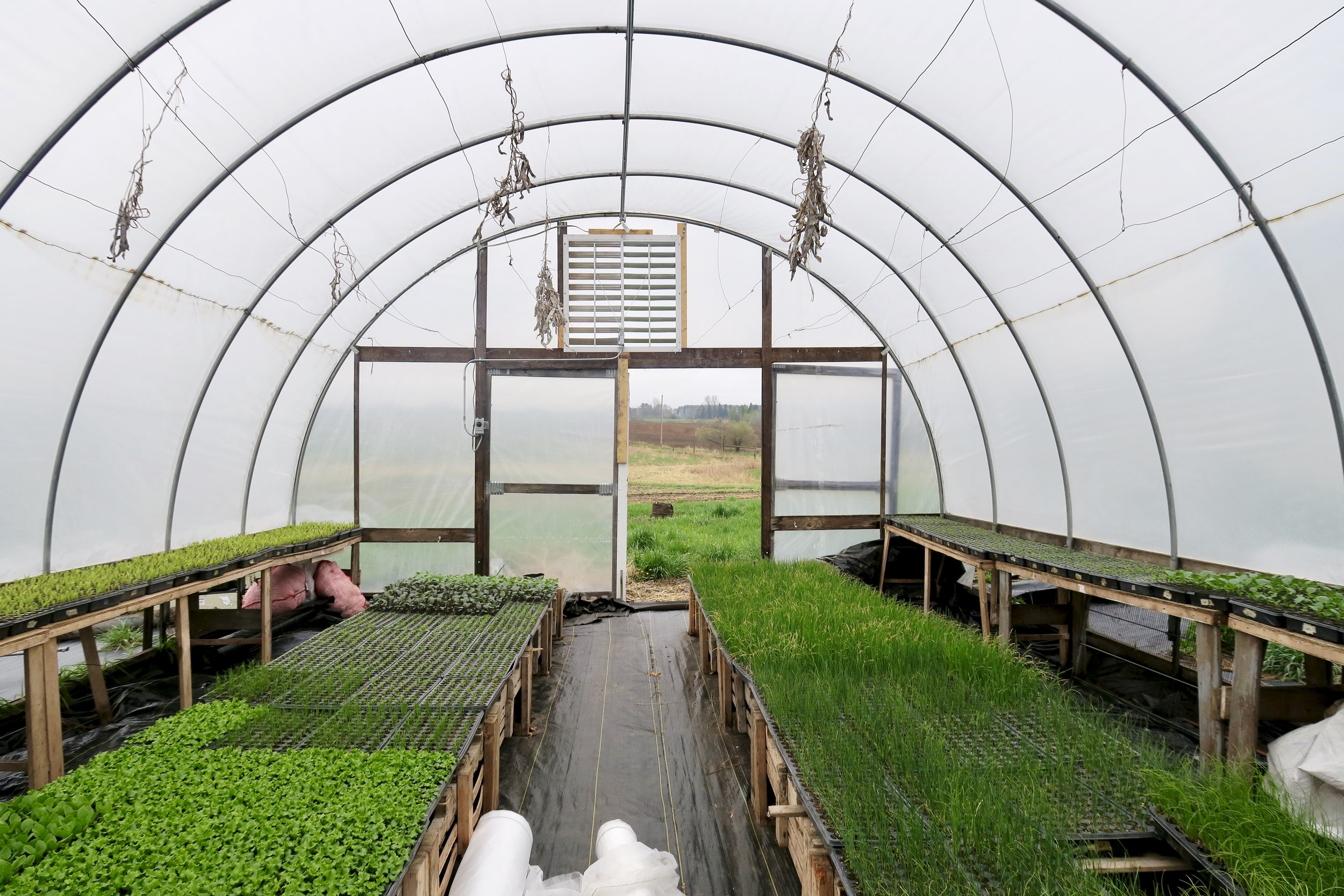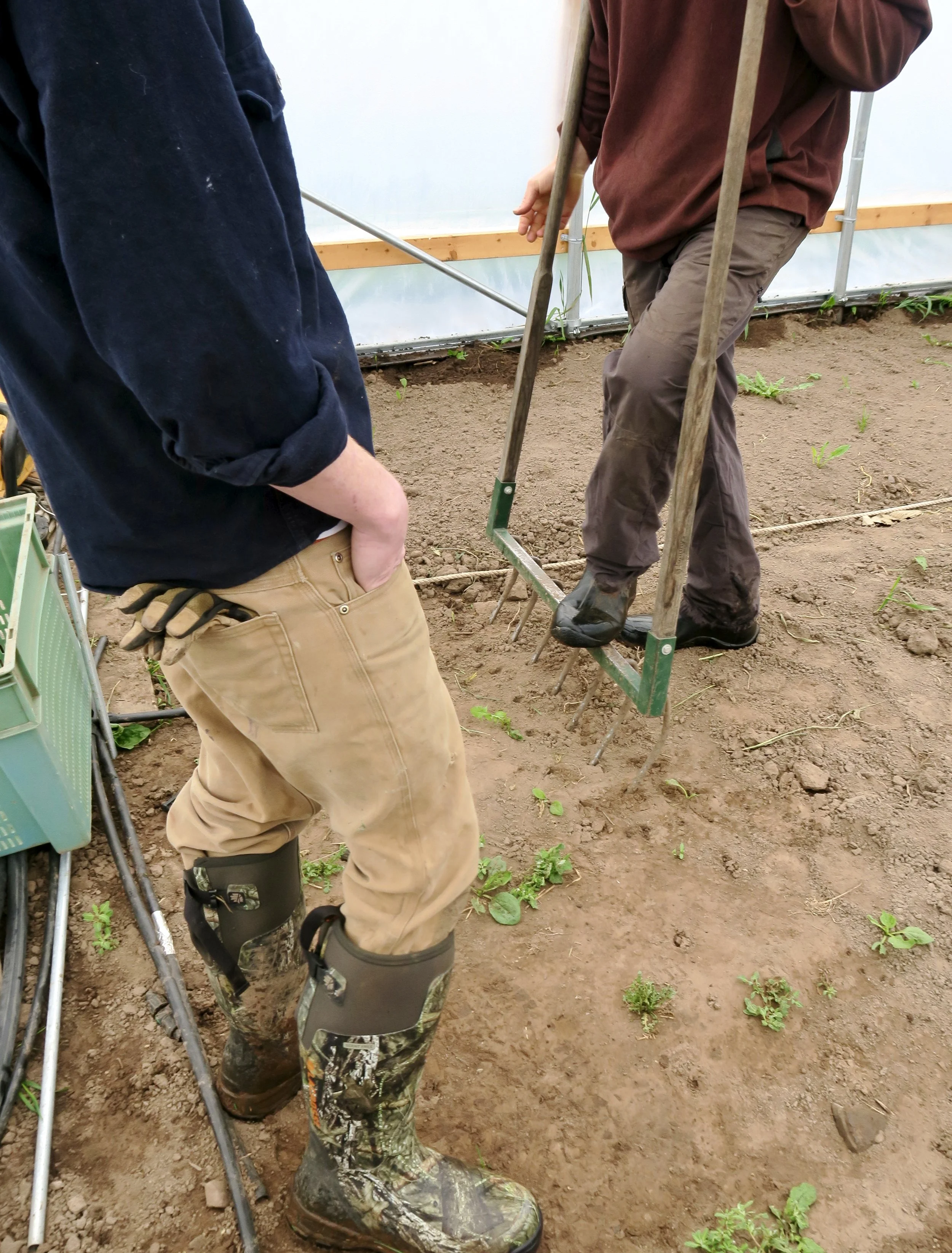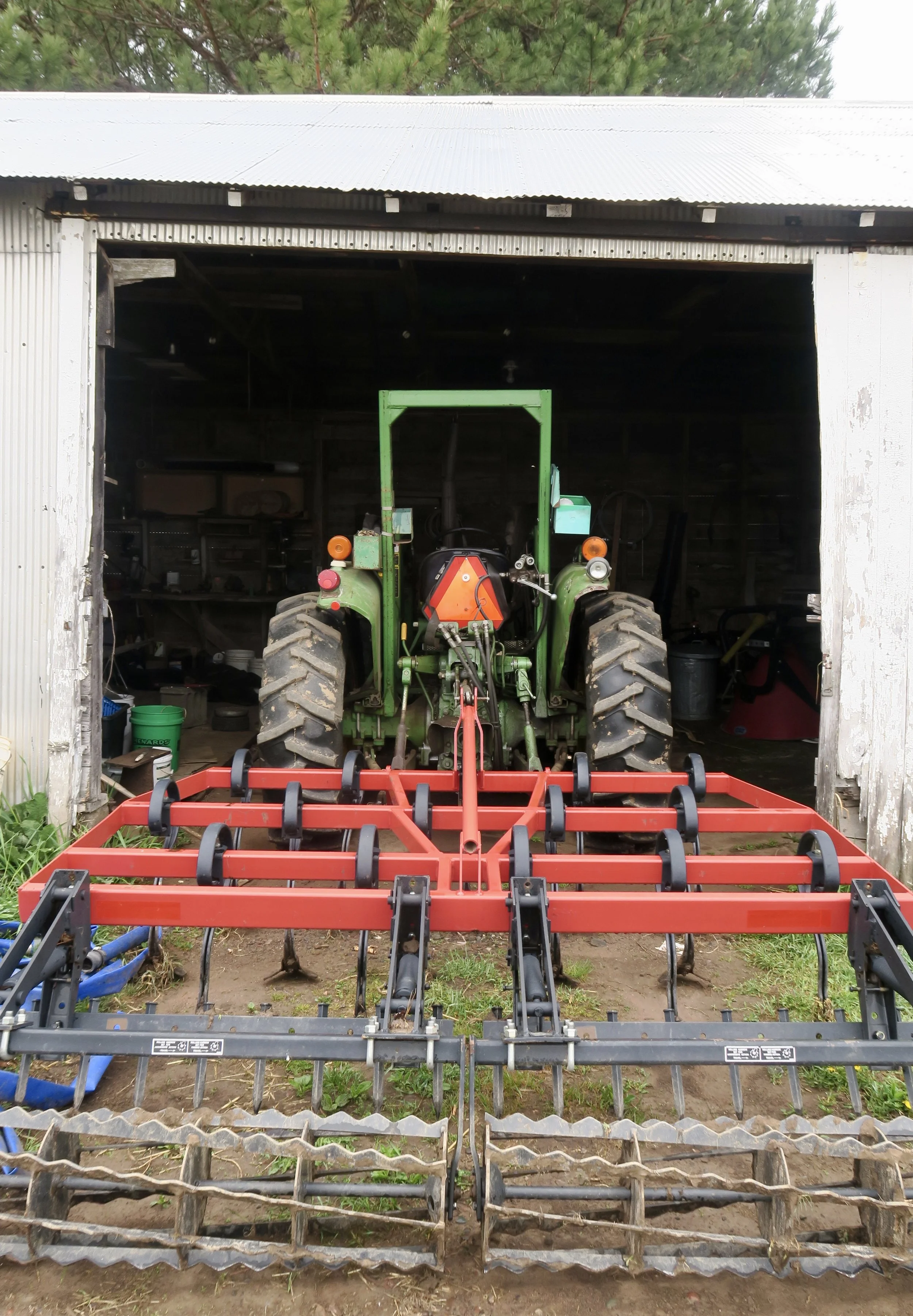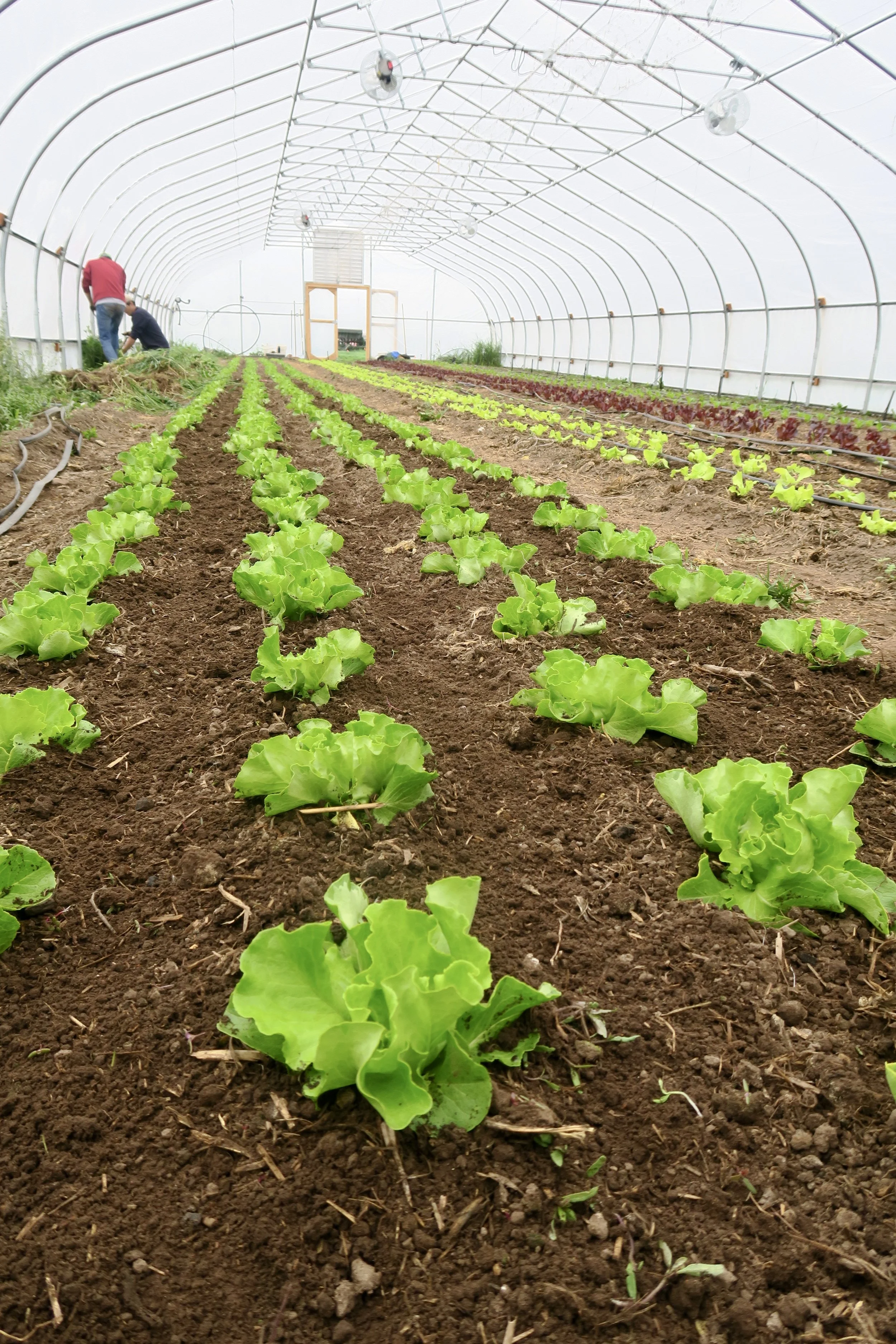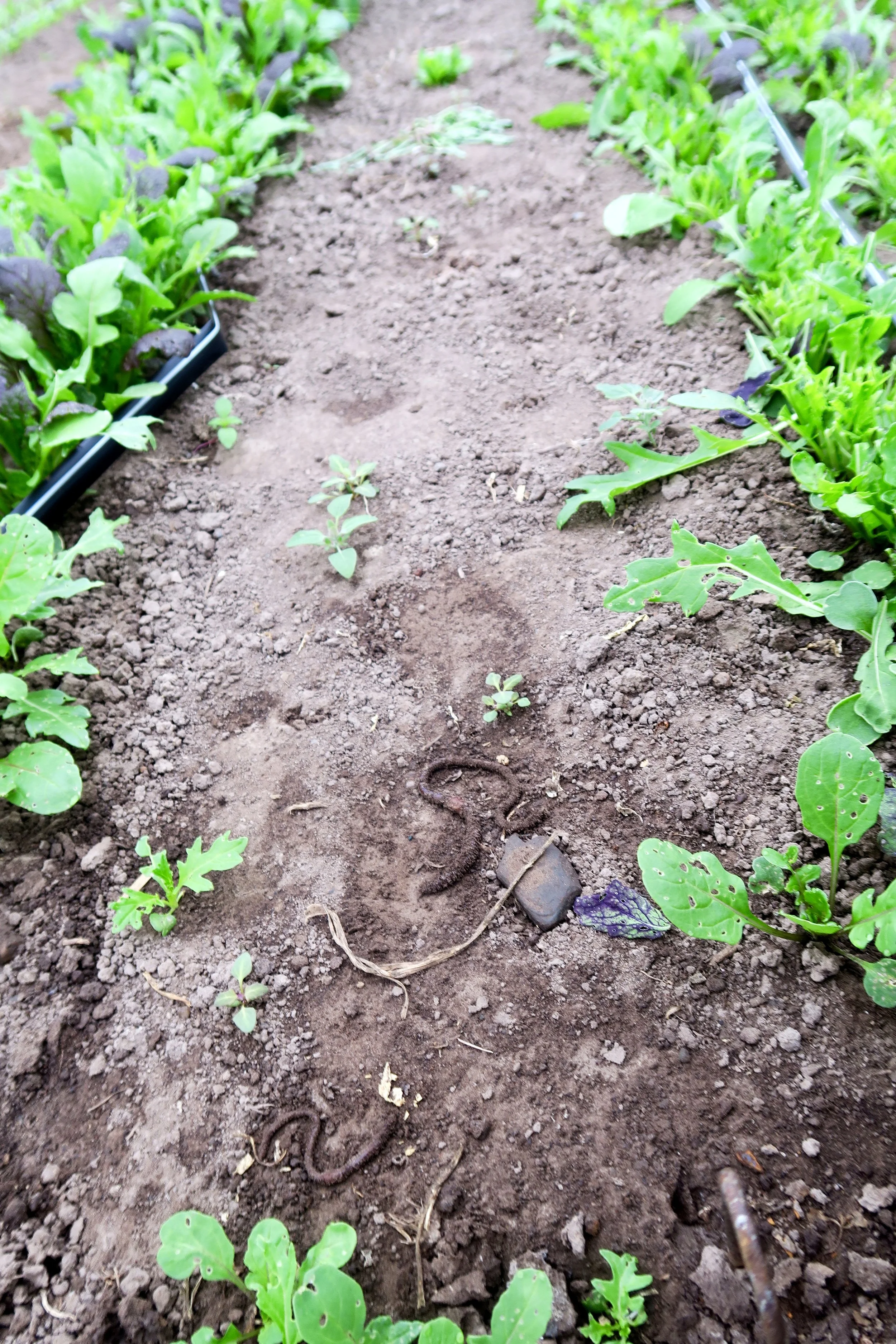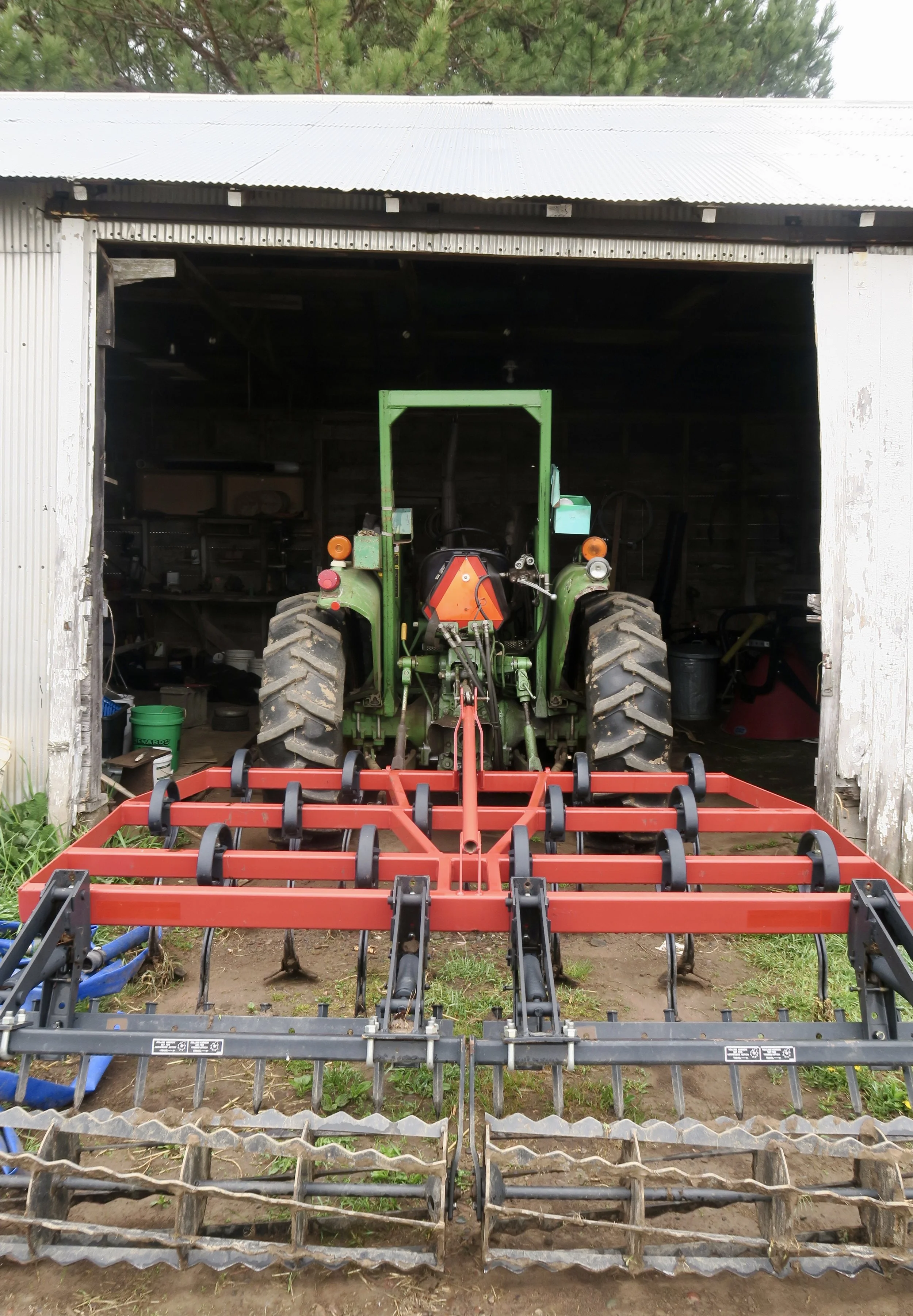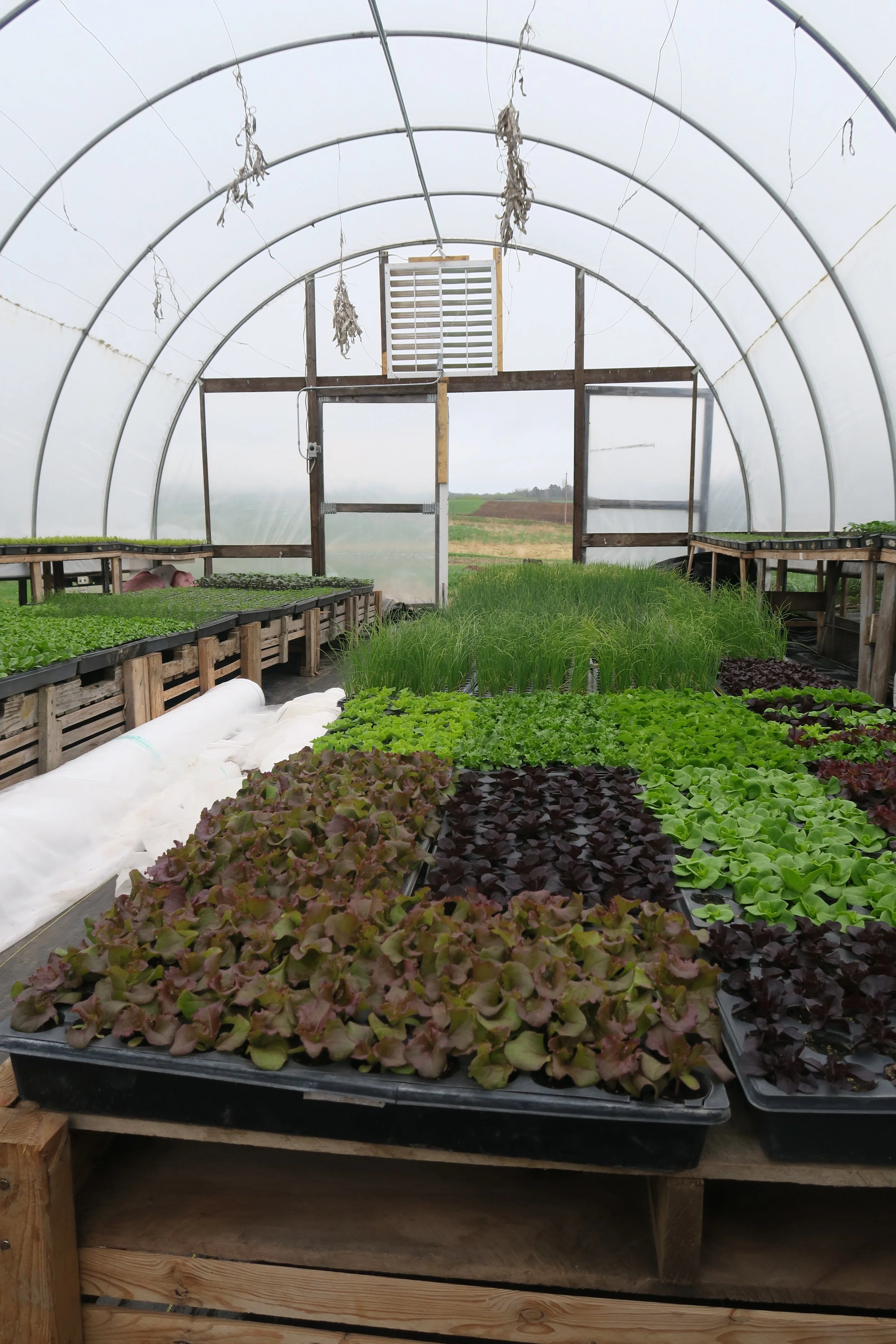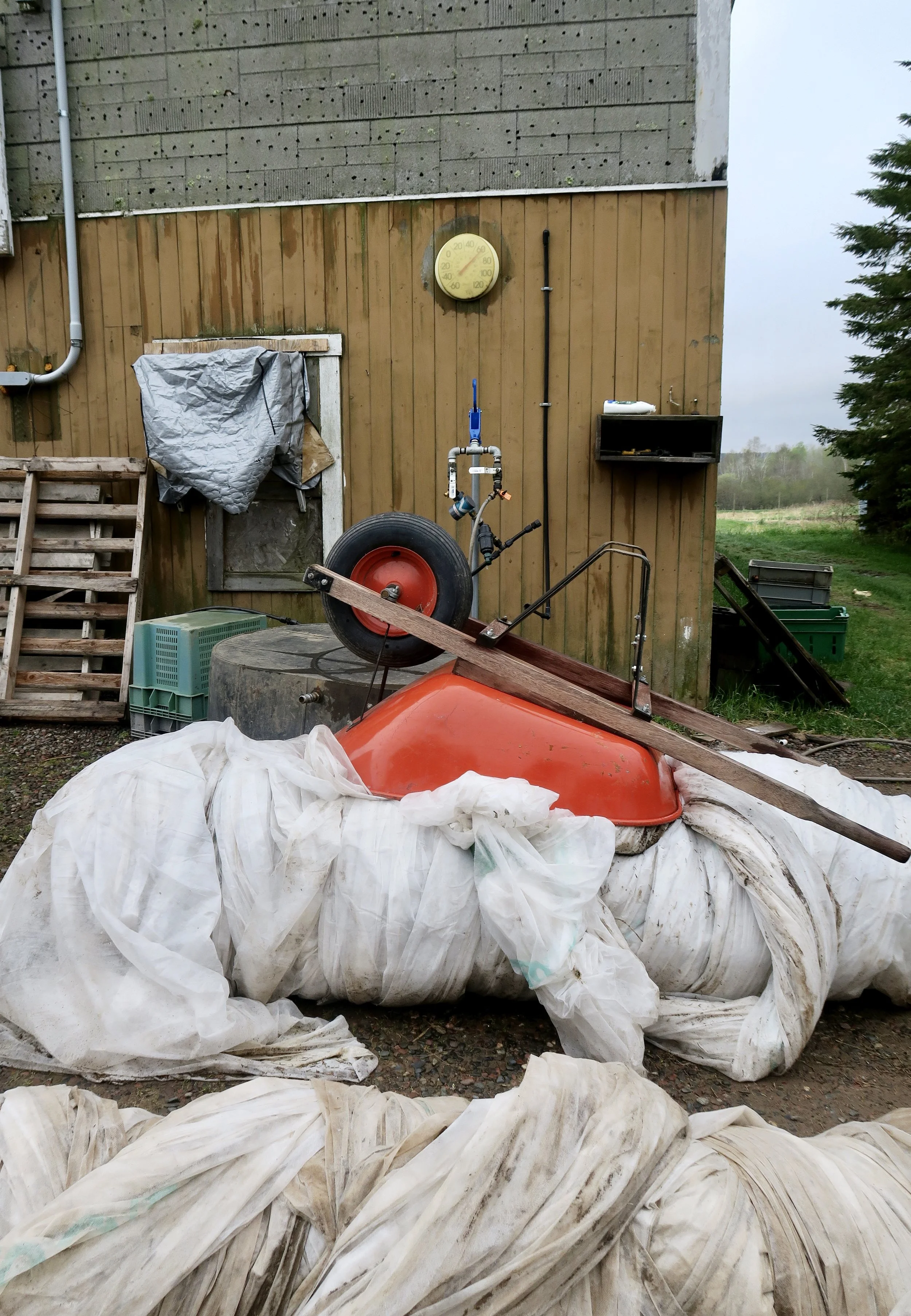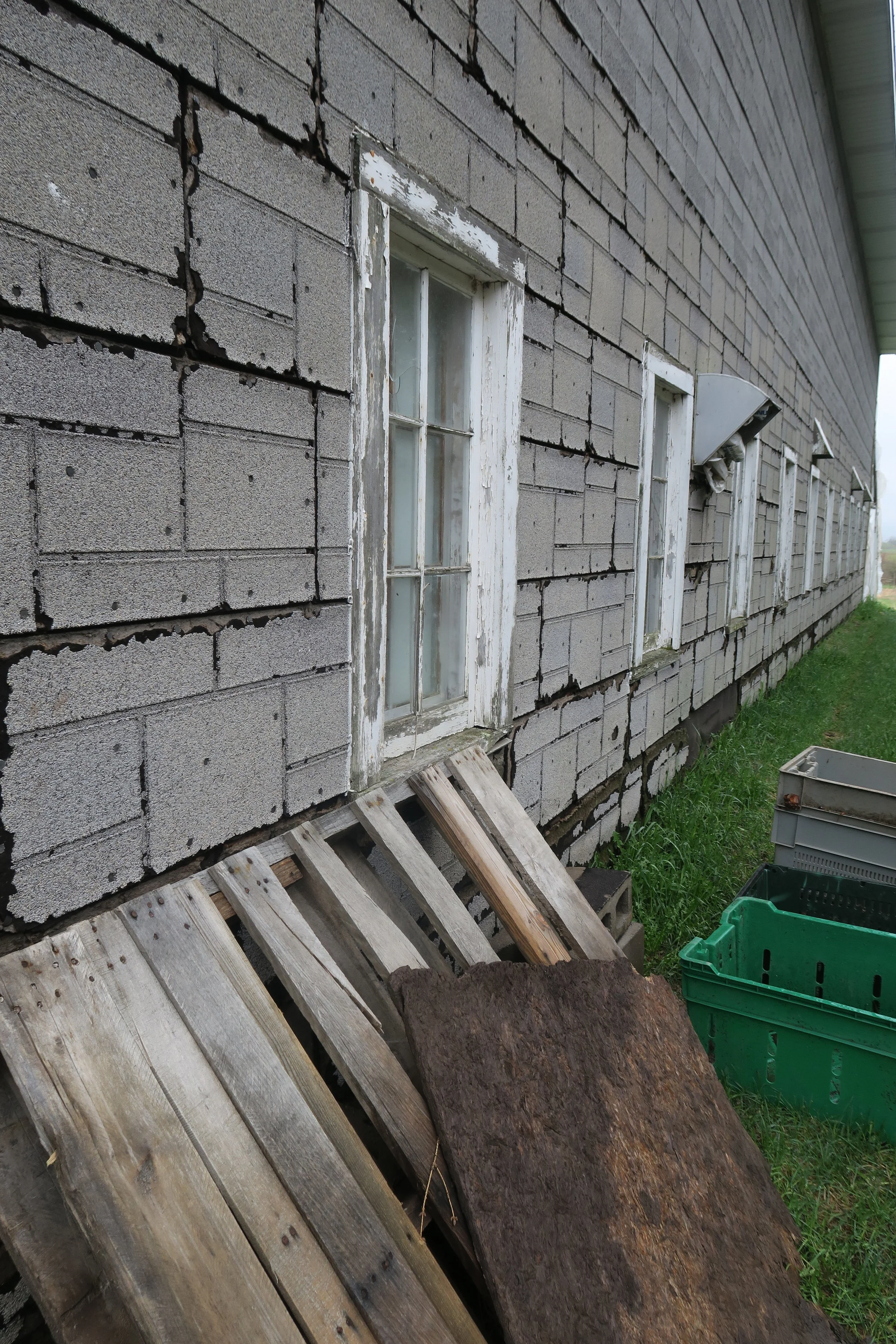May 17, 2017
Heavy rain fell as I left Duluth and headed south to Northern Harvest Farm. I immediately regretted my last minute decision to leave my raincoat at home. Thankfully, the rain hadn’t reached Wrenshall, MN and the short jaunt south made for slightly warmer temperatures.
Samson the dog greeted us as soon as we arrived along with Rick Dalen, farmer and owner of Northern Harvest Farm. Rick is friendly, welcoming, and eager to share in his knowledge of farming. I wandered through the hoop houses for awhile, chatting with several of the farm workers who were busy digging and planting. Some friends of ours are doing a summer internship on the farm, so it was significant for me to see them in their element. I could have spent all day in the hoop houses, wandering down the rows of vegetables, smelling the fresh soil.
I watched Rick explain to an intern how to aerate the soil in one of the hoop houses using a broad fork. He stepped on and and swayed back and forth. “Like a dance,” he said. “Dirty dancing,” intern Matt replied with a smile. I followed Rick out to the field to learn a little about Northern Harvest Farm. He took me through a brief version of how he and his wife got started farming, and where they are today. We stood at the edge of the very first field they farmed. It was overgrown with seven foot weeds when they moved in, but the soil underneath was fertile and ready for growth. Shortly after that they were able to use an adjacent field and Rick referred to the area as “The Fertile Triangle.”
Northern Harvest Farm is an organic farm. They rotate the crops in the fields and use a variety of cover crops to maintain healthy soil. Rick explained the “microbial communities” beneath the soil as if they were another crop he grew. The care he gives to these microbes are a huge part of what makes his organic farm healthy and sustainable. Biodiversity is essential to a vibrant, organic farm. It was the use of cover crops and other methods of bringing nutrients into the soil that allowed them to expand into the other fields. “It’s been a really rewarding aspect of what we do,” Rick said, “to see that inert soil come more and more back to life, become more and more vibrant, more and more alive and produce good food.”
Rick described the ups and downs of farming, the constant need to monitor and adjust what you are doing. “Ten years in I don’t feel like we’re that much above beginner level. You’re always having to adjust. That’s also part of the appeal to me. It’s kind of fun to always have to be problem solving and changing and figuring things out.” Talking to Rick, I caught a glimpse of how his mind must always be working, calculating to best care for his crops. “That’s the fun thing about being an organic farmer,” he said. “You’re always learning because there’s always more to learn. You’re not going to master nature.” He laughed at the thought of that, as someone who has undoubtedly seen and experienced the unpredictable behavior of nature.
I asked Rick about the experience of being a farmer and the affirming moments for him. “One misconception about farming is that time is kind of relative. You’re just out there and you can relax, but it’s actually just the opposite. Everything is so time sensitive. Timely cultivation, timely planting, everything done in a timely fashion. Then you have weather you have to work around. You’ve got all these moving factors. When it’s go time, it’s go time. The more romantic ideas do happen. You do have those moments but it’s also…you have to really work hard.”
Northern Harvest has a rich diversity of crops. They typically have more than thirty different crops going, with close to 100 different varieties. Their primary distribution is through CSA (Community Supported Agriculture), and they like to provide their customers with a wide variety of crops in their shares. Some things they plant once but others, like lettuce and broccoli, they plant over and over throughout the summer.
This crop diversity is essential to a vibrant, organic farm. Rick went into the history and necessity of diverse crops. “We have all this rich diversity of crops that have been grown, regionally specific, and they’ve been selected over generations and generations to perform well in different locales and have different qualities and flavor. And we’re losing that because we’re basically replacing it with completely homogenized seed that just is genetically almost identical. I’m referring mostly to the GMO movement, but commercial production in general becomes more and more industrialized where everything is very standardized, very homogenized, and everything becomes very uniform in order to fit into that kind of system. So what we’re losing is this huge diversity, genetic diversity, which any ecologist will tell you is the cornerstone of a resilient ecosystem. And, as humans, we’re kind of putting all our eggs in one basket. That’s part of our mission is to help to foster an alternative where we’re trying to preserve that diversity.” Rick has started a potato breeding program at Northern Harvest. He is breeding genetic diversity, with potatoes that are horizontally resistant to disease and pests.
I wanted to hear from Rick why he thought people should take part in CSA. The first thing that came to his mind was health. You can have complete assurance that you are getting wholesome vegetables that are not covered in chemicals. He also spoke about connection to land and the food we eat. “There’s a hunger for connection to the land in our society because in so many ways we’ve been disconnected from the land. Duluth is great in that we have a lot of people that are really interested in connecting. This is one way to connect with the land and food. People value that and it’s important. Providing that avenue for people to connect is a service in addition to just the vegetables. The percentage of people that even know about CSA, much less have one, is pretty small. The potential is huge.”
Part of the CSA program is that you are sharing in the risk and the reward of farming. Because of this, you can’t know exactly what each share will contain. Rick said, “You have to understand as a CSA customer that every farm is going to be different. We’re asking people to share in the risks of farming, but our job is to mitigate those risks just as much as we possibly can and different farms are going to have a different capacity to do that.”
Rick’s enthusiasm for farming came across in every word he said. He is clearly passionate about caring for the land for future generations. He is always learning and he clearly loves what he does. “We’re really lucky. We’re really fortunate to live in such a beautiful place, to take care of this place, and to grow food. We’re feeding people.”
For more information about Northern Harvest, or if you would like to inquire about their CSA program, check out the Northern Harvest Farm website.
If these topics interest you and you’d like to know more, Rick suggested looking into the work of Vandana Shiva, a physicist and activist for biodiversity.
